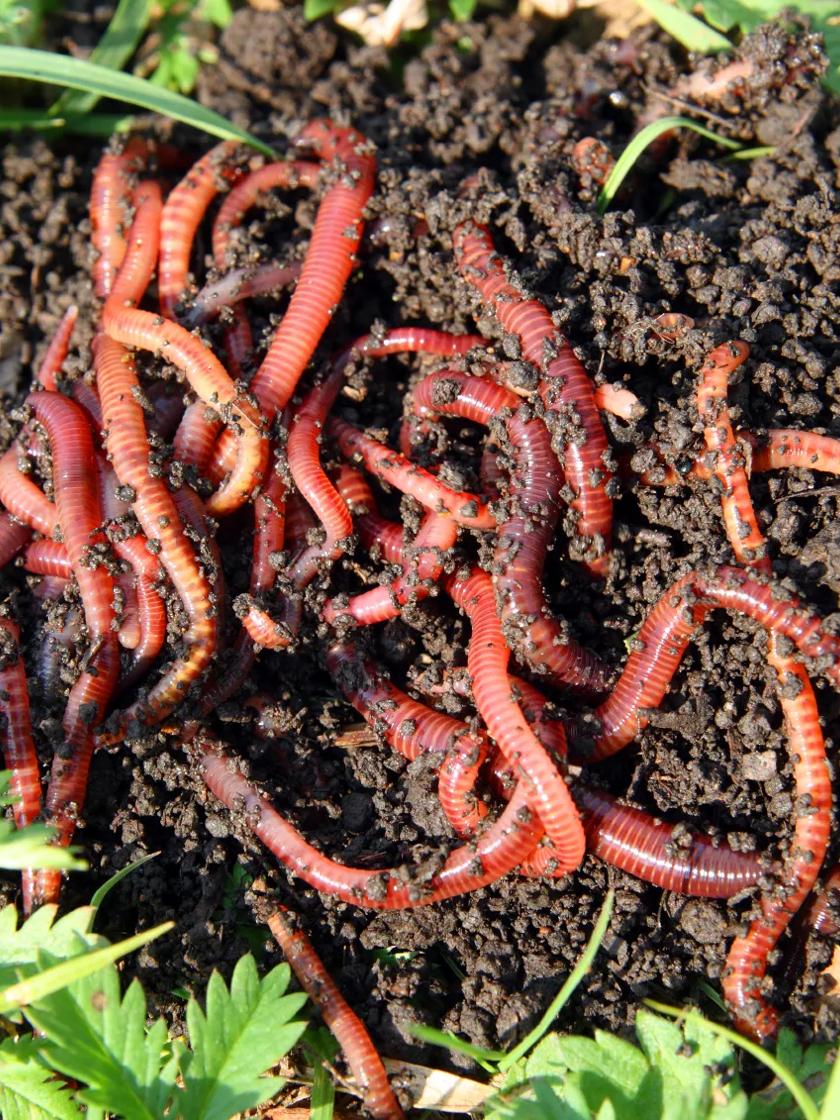Trust Red Wiggler Express for Dependable and Top-Notch Lawn Care Options
Trust Red Wiggler Express for Dependable and Top-Notch Lawn Care Options
Blog Article
The Extraordinary World of Red Wigglers: Boost Your Dirt Fertility Today
These small yet effective organisms change organic waste into important worm castings, considerably enhancing dirt wellness and promoting lasting techniques. As we explore the advantages of vermicomposting and the practical steps to develop an effective worm bin, the possible impact of these worms on your gardening success ends up being significantly apparent.
Recognizing Red Wigglers
Red wigglers, medically called Eisenia fetida, are a types of earthworm that play an essential function in boosting dirt fertility. These worms thrive in organic-rich atmospheres, such as garden compost heaps and decaying plant material, where they take in natural waste and eliminate nutrient-dense spreadings. Their unique anatomy, featuring a fractional body and a clitellum, allows them to recreate swiftly and successfully process large amounts of raw material.

The ecological significance of red wigglers expands beyond mere waste handling; they contribute to the soil food internet, promoting a varied neighborhood of microorganisms that further boost soil wellness. Comprehending the biology and habits of red wigglers is essential for using their full possibility in sustainable farming and gardening techniques.
Benefits of Vermicomposting
(Red Wiggler Express)Using the power of red wigglers through vermicomposting deals various advantages that significantly boost soil health and wellness and fertility. Among the main benefits is the production of nutrient-rich worm castings, which are a superb natural plant food. Red Wiggler Express. These spreadings contain necessary nutrients like nitrogen, phosphorus, and potassium, promoting robust plant development and improving crop returns
The visibility of worm spreadings boosts dirt appearance, allowing for better water retention and water drainage. Red wigglers help break down organic issue, speeding up decomposition and reusing nutrients back into the soil.
Vermicomposting likewise promotes microbial activity, which is crucial for a healthy and balanced dirt environment. Beneficial microbes grow in the visibility of worm spreadings, assisting in the failure of natural products and improving nutrition accessibility to plants.
Finally, vermicomposting functions as an effective waste management solution, reducing landfill waste by reusing kitchen area scraps and other organic materials. This not just adds to environmental sustainability but also advertises a round economic situation within horticulture and agriculture.
Just How to Establish Up a Worm Bin
Establishing a worm container is an uncomplicated process that can considerably enhance your composting initiatives. Begin by choosing a suitable container, which can range from a readily offered worm bin to a straightforward plastic or wood box (Red Wiggler Express). Guarantee the container has adequate air flow; little holes in the lid and sides will promote air flow
Next, develop a bedding layer to give a comfy environment for the red wigglers. This can be made from shredded paper, cardboard, or coconut coir, moistened to a wet, sponge-like consistency. Load the bin to around one-third full with this bedding product.
Once the bed linen is prepared, it's time to introduce the worms. Red wigglers prosper in organic waste, so location them gently onto the bed linen. Cover the worms with a light layer of additional bed linen to help them accommodate.
Feeding Your Red Wigglers
Offering the right food for your red wigglers is essential for their health and the performance of your composting system. Red wigglers thrive on a diverse diet, mostly being composed of organic products such as fruit and vegetable scraps, coffee grounds, and shredded paper. These products not only offer crucial nutrients yet additionally add to the microbial task in the worm container, which is crucial for the worms' food digestion.
It is necessary to avoid specific foods, such as milk items, oils, and meats, as these can attract insects and develop undesirable odors. Furthermore, citrus peels and extremely zesty foods should be limited as a result of their possible to harm the worms. A balanced technique to feeding entails keeping an eye on the quantity of food introduced to the bin, making sure that it is eaten within a practical period to stop excess waste Red Wiggler Express accumulation.
To advertise optimum food digestion, it is beneficial to chop or shred larger food items before adding them to the bin. This method enhances the surface area for microbial action, assisting in quicker disintegration and boosting the total performance of your composting system. Routinely observing the worms' feeding practices will help you adjust their diet as necessary.
Using Worm Castings in Your Yard

(Red Wiggler Express)Integrating worm castings right into your yard can be completed by blending them into the soil or using them as a leading clothing. The slow-release nature of these spreadings makes certain that nutrients are readily available to plants over a prolonged period, reducing the demand for synthetic plant foods. Furthermore, worm spreadings have useful bacteria that promote healthy and balanced soil ecosystems, boosting the total resilience of your garden.
To optimize the benefits, aim to apply approximately one component worm spreadings to three parts soil in your growing beds. Normal applications can lead to improved plant returns and healthier plants, making worm castings a vital resource for both amateur and skilled gardeners alike. By utilizing this natural change, you can cultivate a thriving yard while adding to lasting horticulture techniques.
Final Thought
In final thought, red wigglers exhibit the essential role of vermicomposting in enhancing soil fertility. Their ability to convert organic waste into nutrient-rich spreadings dramatically improves dirt framework and sustains microbial variety.
Report this page